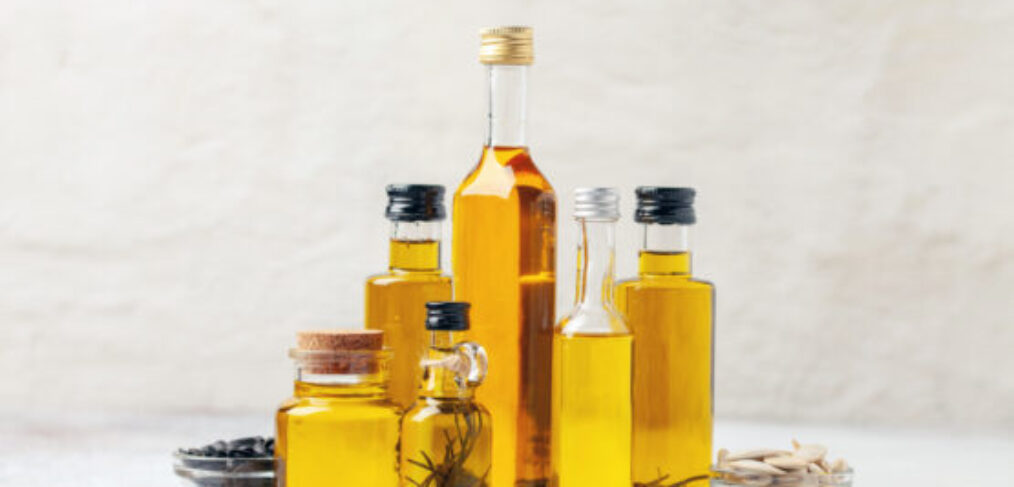The 3 Best Plant Fats and The Dangerous Ones to Steer Clear Of

Don’t let the seemingly pleasant image of perfectly packaged oils fool you.
It’s quite simple: if we find it in nature, or as some might say, “If God made it”, it’s far more likely to be something we can eat, digest and assimilate properly, in a manner which benefits our body.
If not, not only are the nutrient density and bioavailability are significantly lessened, the chances of the man-made item you’re about to consume can be more likely to cause harm to the body.
When it comes to choosing the best fats, the top three that many people can healthfully eat each and every day, regardless of whether they’re opting to follow a Paleo, Vegan, Keto or Mediterranean (or any of the many interpretations thereof) are all found in nature: olive oil, coconut oil and fresh avocado or avocado oil.
Collectively, these three provide a balance of polyunsaturated, saturated (yes, we do need some of this type) and monounsaturated fats.
Let’s start with the simplest, least (or zero) processed: a fresh, local avocado. If you’re in an area where these amazing fruits grow and they’re in season, this is the best of the best as all you need to do is pick it an eat it.
Coconut, olive and avocado oils are processed in the sense that something must be done to each in order to extract the oil, but all can be done without adding anything untoward or degrading the food so much that the residual nutrition become negligible.
Exactly the opposite of seed oils.
In 1911, Proctor and Gamble, originally a soap and candle company, introduced Crisco, originally made off cotton seed oil, as a substitute for lard and butter. Although their initial intent was to completely harden oils for use as raw material for making soap, these processes ensured that the fat would remain solid at normal storage temperatures and could find use in the food industry. (1)
This process forms trans fats, considered the worst type of fat to eat. Unlike other dietary fats, trans fats — also called trans-fatty acids — raise “bad” cholesterol and also lowers “good” cholesterol. A diet laden with trans fats increases the risk of heart disease, the leading killer of adults (2)
And while Crisco is now not made with just cottonseed oil, the ingredient label containing soybean oil, fully hydrogenated palm oil and TBHQ, which, according to the National Library of Medicine (3), cases of vision disturbances have been reported when humans consume TBHQ as well as studies that have found TBHQ to cause liver enlargement, neurotoxic effects, convulsions, and paralysis in laboratory animals (4).
Let’s consider some more examples of toxic seed (or ‘vegetable’ which in this case just means not animal derived) oils:
In a typical edible oil processing plant oil is extracted from the seed first using mechanical extraction (expeller press) followed by chemical extraction (hexane extraction). By using both methods less than 1% of the oil is left in the meal that is produced (5).
What’s hexane?
A chemical made from crude oil, chronic (long- term) exposure to hexane in air is associated with polyneuropathy in humans, with numbness in the extremities, muscular weakness, blurred vision, headache, and fatigue observed. (6)
But that’s only one part of the process; the industrial seed oils, like soybeans, corn, rapeseed (the source of canola oil), cottonseed, and safflower seeds undergo other steps including bleaching and deodorizing.
So what’s the benefit of consuming seed oils?
Absolutely none from a health standpoint; in fact, consuming these toxic oils, especially soybean oil, is linked to many health concerns including obesity, diabetes, autism, Alzheimer’s disease, anxiety, and depression. Add now to this growing list ulcerative colitis, a form of inflammatory bowel disease, or IBD, characterized by chronic inflammation of the large intestine (7).
There is but one benefit – that being for Big Ag, who benefits tremendously, as seed oils are a way to turn a profit from what would otherwise be waste. Cottonseed oil would have just been thrown out if Crisco had never been invented; turning it into “food” made that trash into a gold mine. Today, subsidies for corn and soybeans make the supply of these foods much greater than the demand, and oil is one way to turn this otherwise-unprofitable surplus into “food.”
Because they’re made from agricultural surplus, seed oils are very cheap for the consumer – just compare a bottle of canola oil to a bottle of olive oil (9) .
One more example of how incredibly crucial it is that we prioritize food not in packages as the mainstay of what we eat, and that we diligently go through labels with a fine tooth comb in order to ensure we’re avoiding these harmful, yet perfectly legal additives.
- https://en.wikipedia.org/wiki/Crisco#
- https://www.mayoclinic.org/diseases-conditions/high-blood-cholesterol/in-depth/trans-fat/art-20046114
- https://www.healthline.com/health/food-nutrition/potential-tbhq-dangers
- https://crisco.com/product/all-vegetable-shortening/
- https://extension.psu.edu/processing-edible-oils
- https://www.epa.gov/sites/default/files/2016-09/documents/hexane.pdf
- https://www.universityofcalifornia.edu/news/widely-consumed-vegetable-oil-leads-unhealthy-gut
- https://paleoleap.com/whats-wrong-industrial-oils/





